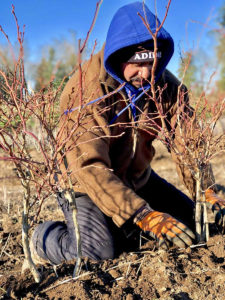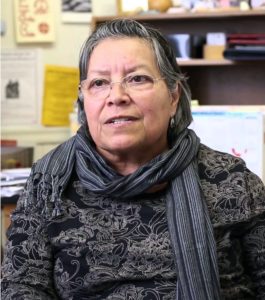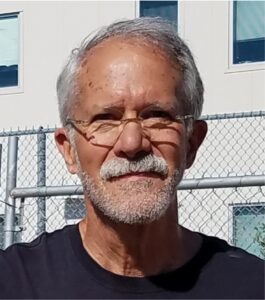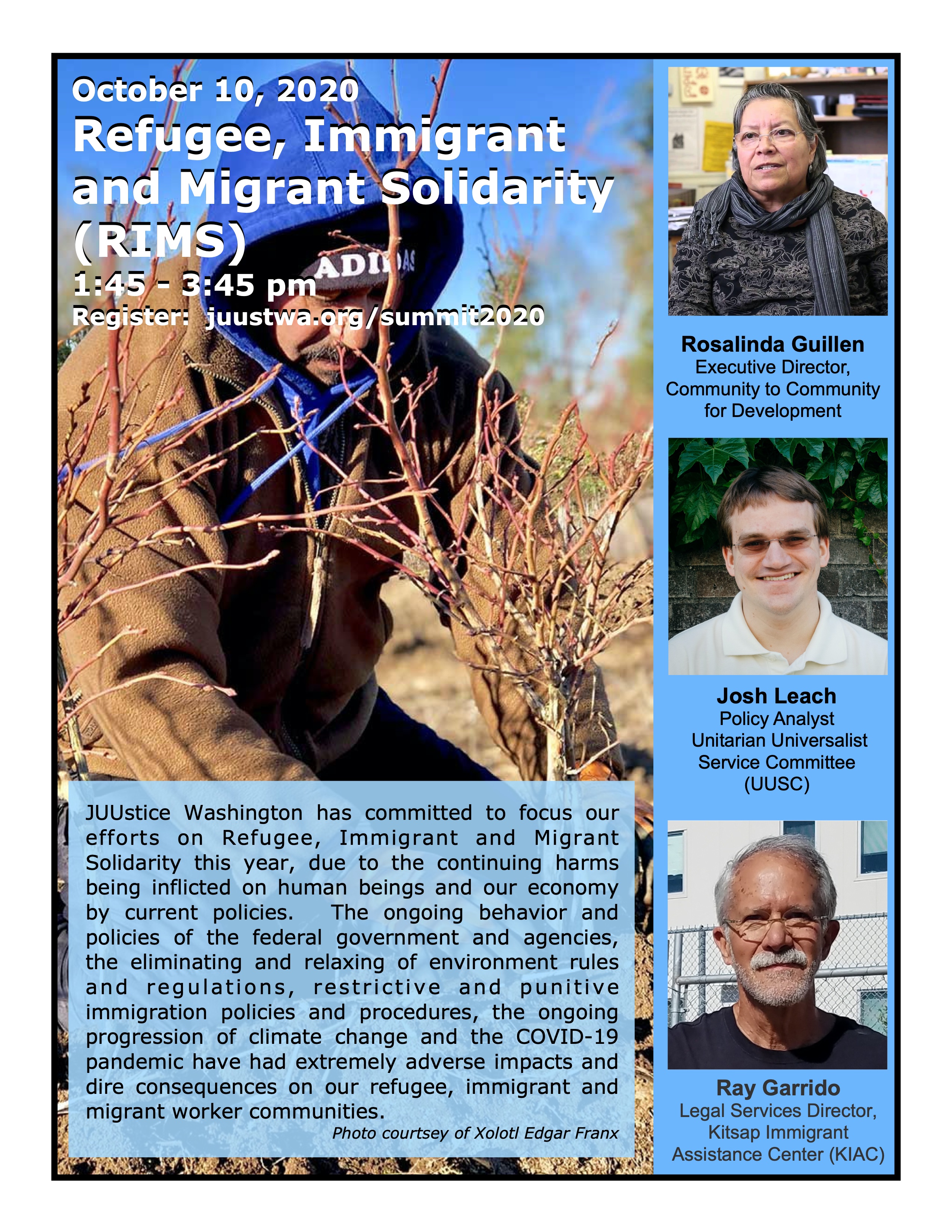
December 6, 2020 Strategy Session Summary
These two work groups eventually merged their work sessions as there was a significant intersection between them and they covered any number of issues related to immigration issues and with particular emphasis on migrant workers. Topics discussed included:
Migrant workers
- Yakima farmworkers working towards forming a union, Trabjadores unidos por la Justicia. Among other things, we need to show Allan Brothers, Inc., that we are behind the farmworkers. It’s a simple ask: take a picture of yourself with a sign to show your support and post it to their Facebook page (above)!
- COVID-19 is an ongoing issue Migrant workers including access to the necessary personal protective equipment (PPE), overcrowded working conditions, forced the layoffs of many migrant and immigrant workers creating significant economic hardship, ineligibility for federal or state benefits and being forced to work in dangerous working conditions under the threats of job termination, evictions and deportation and immigration proceedings.
- Wildfires. Many workers were subject to prolonged periods of inhaling the smoke and labor camps and housing areas threatened by the wildfires led to evacuations without any official evacuation centers to go to.
- Internet Access. Another issue for migrant farmworkers has been the lack of and inadequate access to the internet. It poses a barrier to speaking to legislators, access to what services might be available, children’s access to remote learning through the school systems and more, all of which are now all online because of COVID-19. Later in the Legislative Advocacy session, Rep. Alex Ramel explained some of the complexities of this and how the legislature is grappling with it.
DACA
The Supreme Court ruled 5-4 in June that the Trump administration’s 2017 decision to weaken DACA was legally flawed and required the reinstatement of the program. DACA still remains under threat while several lawsuits are pending. There is the need to add pathways to citizenship that DACA currently doesn’t provide for.
DHS (Department of Homeland Security)
We are waiting for Biden/Harris transition team’s choice to head up the DHS.
Immigrant Amnesty
There is the need to institute an immigrant amnesty initiative like the one put forward in 1986. At that time, President Ronald Reagan signed the Immigration Reform and Control Act which acts as an official pardon for undocumented immigrants.
Accredited Representatives
ARs are in critical need to help individuals through the immigration, asylum and citizenship processes. Ray Garrido of the Kitsap Immigrant Assistance Center has information available for individuals and organizations to become this resource. We will be sending out more information on this soon.
UUSC Immigration resources and programs
UUSC has a number of resources and programs to assist individuals and congregations in addressing different ways they can assist with working to support existing immigration organizations (TPS), lobbying the Congress for immigration reform, also assisting in sheltering immigrants while they go through the system. There’s too many to list here, so be sure to check out their website. More information will also be coming out.
Dignity Campaign
While the group did not discuss this directly, it is the foundation for a lot of the work discussed above. All congregations, organizations, allies and partners are encouraged to review the Campaign’s materials.
Detention Centers and Sanctuary.
These will be discussed at a later date.
Part II of the Summit!
Refugee, Immigrant and Migrant Solidarity (RIMS) – Sunday, December 6, 8:30-11:30 am PST
Workgroup Topics
- Basic Human Rights: In this workgroup, we will explore broadly or specifically basic human rights for refugees, immigrants and migrant laborers. Participants will learn about and become advocates for the Dignity Campaign’s proposal for comprehensive immigration reform; humane labor standards; protections from deportation, including sanctuary spaces; and detention center reform.
- Citizenship pathways and Asylum Seeking: In this workgroup, we will explore broadly or specifically support for refugees, immigrants and migrant laborers to gain legal protected statuses. Participants will work to advocate for overturning legislature implemented under the Trump administration, such as reinstating Temporary Protected Status (TPS), Deferred Enforced Departure (DED) and Deferred Actions for Childhood Arrivals (DACA); take steps toward legal help and due process, including the opportunity to start the process of becoming an accredited representative, accompanying asylum seekers who are going through the immigration court process; and to plan direct action and legislative advocacy campaigns related to immigration and family separation.
JUUstice Washington has committed to focus our efforts on Refugee, Immigrant and Migrant Solidarity this year, due to the continuing harms being inflicted on human beings and our economy by current policies. The ongoing behavior and policies of the federal government and agencies, the eliminating and relaxing of environment rules and regulations, restrictive and punitive immigration policies and procedures, the ongoing progression of climate change and the COVID-19 pandemic have had extremely adverse impacts and dire consequences on our refugee, immigrant and migrant worker communities.
To help reinvigorate the Refugee, Immigrant and Migrant solidarity (RIMS) action team to meet these challenges with affected communities, JUUstice Washington is grateful to have received a grant from the Fund for UU Social Responsibility. We have hired two wonderful facilitators to connect with congregations and build leadership teams. For information on this initiative and more about action teams, contact Larkin & Sahar at actionteams@juustwa.org.
The October 10th panel was a huge success and our panelists were in outstanding form as usual and many will be rejoining us for the December work strategy session once again. If you missed the October panel and are interested in viewing the recording of it, go to https://juustwa.org/summit2020 and register for Part II. The links will be given to you with your registration confirmation and get you signed up for the 4-6th weekend strategy session.
Part II work groups will be looking to cover a wide range of topics in all their complexities including the Dignity Campaign, accredited representatives, overturning adverse legislation and regulations, detention centers and Santuary models.
Register for the Summit Now!
In the meantime here is a brief summary of what our panels had to say during the October 9 panel session.
RIMS Panel Summary
Josh Leach: Josh’s presentation covered Unitarian Universalist Service Committee’s work with migrant justice. Josh covered the origins UUSC being involved in the Central American refugee crisis that unfolded in the 1980s. It has been involved with migrant issues since including the Guatemala’s civil war in the80s and 90s and again with the surge of unaccompanied children from Central American in 2014. He cited the many reasons for immigration including poverty and deprivation and violence. UUSC’s current work includes focusing on the right to stay safely at home in Central America. The right to be safe and transiting between borders and the right to due process and asylum here in the United States. He spoke of the importance of partnering with grassroots organization on the ground in affected areas and cited many examples of these partnerships. He spoke of the recent situations around COVID-19, DACA, reduction of green cards and Title 42 expulsions, the Temporary Protective Status program and partnership with TPS Alliance, deportation and presidency and citizenship.
Ray Garrido: Ray provided a little history on the Kitsap Immigrant Assistance Center. He stressed their appeal for and work in legal assistance under the Department of Justice. He discussed a program for “accredited representatives,” people trained to provide legal services. These services include assistance with citizenship pathways, applying for green cards, representing victims of crime and removal proceedings. Several of the organization’s accredited representatives are allowed to represent people in immigration court and before the board of immigration appeals. The organization also provides social services including rent and food assistance. He spoke to his personal experience in learning much about the people—where they came from and why the came to the U.S. Currently most of the immigrants in removal proceedings are from Guatemala though there are those from Africa and eastern Europe. He stated there have been 48 major changes to various immigration rules that have increased barriers to coming here. He particularly focused on those people seeking asylum and the asylum processes and who is allowed to apply under what conditions and who is not. He used domestic and gang violence as an example of the rule changes and also the costs applicants have to pay to go through the system up to the appeals process. He stated that it will take a lot of work to undo the damage the current administration has done. There is hope with a potentially new administration coming in, but they will then also expect a significant increase in caseloads.
Rosalinda Guillen: Rosalinda started out with describing the C2C/BUF (Bellingham Unitarian Fellowship) partnership and their role in responding to 3 major ICE raids. She described how Whatcom County is home to one of the largest Department of Homeland Security (DHS) offices and is in the center of Homeland Security oversight and enforcement of immigration law for the region. Its highly militarized and cooperatives with various other federal agencies like the FBI, ATF, Coast Guard and others that also have offices there. She went on to speak about C2C’s role in advocating rights of farm workers and those of immigrant workers and immigrant families. She described their beginnings in opposing the Minuteman project—a vigilante border patrol operation. She described the importance of the Dignity Campaign and how immigration law is rooted in institutional racism and ethnocentricity. She spoke of our immigration program as that of legal slavery for the agricultural and other industries and yet people come here to achieve the American Dream. She stressed the rights of immigrant and migrant communities, the right for being in community and belonging. She also spoke to the impact of COVID-19 and related policies on migrant and immigrant workers of color as essential workers and the struggle to get adequate COVID-19 protection and support. She spoke of the deportation of skilled farmworkers and instead bringing in labor of the H2A program of immigrant farmworkers with not even basic rights. She reiterated the inequities in immigration law referencing family separations, access to basic needs and the cruelty of this administration. Given the current status, taking strong stances is required, that civil disobedience is necessary as is challenging local law enforcement on their relationship with DHS and holding the authorities accountable.
Summit RIMS Panel
October 10, 2020 @ 1:45 – 3:45 pm

Rosalinda Guillen (she/hers) is a widely recognized farm worker and rural justice leader. The oldest of eight, she was born in Texas and spent her first decade in Coahuila, Mexico. Her family emigrated to LaConner, Washington in 1960 and she began working as a farmworker in the fields in Skagit County at the age of ten. Ms. Guillen has worked within the labor movement with Caesar Chavez’s United Farm Workers of America and has represented farmworkers in ongoing dialogues of immigration issues, labor rights, trade agreements, and strengthening the food sovereignty movement. She works to build a broader base of support for rural communities and sustainable agriculture policies that ensure equity and healthy communities for farmworkers.
 Josh Leach is a Policy Analyst with Unitarian Universalist Service Committee (UUSC) and he supports UUSC’s programs and communications teams through analysis, writing, and digital engagement. As policy analyst, he monitors developments in federal and state governments affecting UUSC’s human rights objectives, identifies and supports opportunities for digital advocacy and mobilization, and works closely with UUSC’s partners to advance shared initiatives. Before joining the staff full time, Leach worked for 18 months as a research consultant and program intern at UUSC, where his work centered on Central America and the Syrian refugee crisis.
Josh Leach is a Policy Analyst with Unitarian Universalist Service Committee (UUSC) and he supports UUSC’s programs and communications teams through analysis, writing, and digital engagement. As policy analyst, he monitors developments in federal and state governments affecting UUSC’s human rights objectives, identifies and supports opportunities for digital advocacy and mobilization, and works closely with UUSC’s partners to advance shared initiatives. Before joining the staff full time, Leach worked for 18 months as a research consultant and program intern at UUSC, where his work centered on Central America and the Syrian refugee crisis.
 Ray Garrido serves as the volunteer Legal Services Director of the Kitsap Immigrant Assistance Center (KIAC). Ray is a first generation American. He began his volunteer work with KIAC as an ESL tutor and soon became involved in much wider advocacy work. In 2014 Ray helped found KIAC’s immigration services legal program. The program has grown from 2 accredited representatives (non-attorneys authorized to practice immigration law) to 13. It has served over 1,600 clients with matters ranging from becoming citizens to removal defense at the Northwest Detention Center. Ray volunteers between 50 and 60 hours per week. Ray now spends a good deal of his time defending clients in immigration court. He is dedicated to ensuring access to justice for our sisters and brothers.
Ray Garrido serves as the volunteer Legal Services Director of the Kitsap Immigrant Assistance Center (KIAC). Ray is a first generation American. He began his volunteer work with KIAC as an ESL tutor and soon became involved in much wider advocacy work. In 2014 Ray helped found KIAC’s immigration services legal program. The program has grown from 2 accredited representatives (non-attorneys authorized to practice immigration law) to 13. It has served over 1,600 clients with matters ranging from becoming citizens to removal defense at the Northwest Detention Center. Ray volunteers between 50 and 60 hours per week. Ray now spends a good deal of his time defending clients in immigration court. He is dedicated to ensuring access to justice for our sisters and brothers.
JUUstice Washington’s Revitalization Project
JUUstWa has recently launched a revitalization project, as such we have two new skilled interns, Larkin and Sahar, who will be working toward building our racial justice, environmental justice, and RIMS refugee, immigrant, migrant worker solidarity area focuses into greater action and sustainability. If you are an individual, organization, or congregation hoping to go deeper into justice work on these or any of our area focuses. Please contact them at actionteams@juustwa.org take their outreach or volunteer survey, or join their monthly strategy sessions.
